 by Véto-pharma
by Véto-pharma Véto-pharma’s journey is not just about scientific and technological breakthroughs; it’s a testament to the passion and dedication of individuals confronting immense, often unseen challenges that threaten our vital pollinators.
This human and scientific endeavor has been shaped by extraordinary people whose combined efforts have driven success in bee health. Let’s revisit this odyssey and celebrate the key moments that have shaped a crucial part of Véto-pharma’s history.
In 2013, we conceived the ambitious idea of an experimental apiary. After more than a year of meticulous preparation, searching for ideal land, and gathering insights from local beekeepers, the project came to life on April 22, 2014. This apiary has since become the epicenter of applied research tailored to field demands.
The project team, along with experienced beekeeper, established the first experimental apiary with 100 colonies spread across multiple sites around Chaillac.
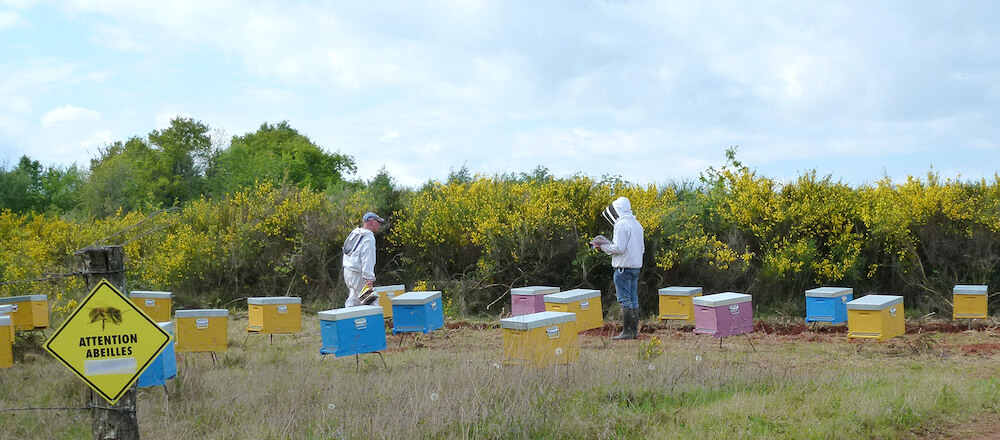
A few weeks after the hives were installed, our researcher-beekeeper with a doctorate in pathology, toxicology, genetics, and nutrition, took charge of hive management and the execution and monitoring of tests.
Several months were required to establish the initial experimental protocols. This marked the beginning of in-vivo studies on the efficacy of varroa control products and tests on nutritional products. The primary objective in the first year was to maintain the number of colonies, ensuring stable resources for conducting trials under optimal conditions.
In 2015, we established a research laboratory and a comprehensive beekeeping facility, the EVA – Bee Valorization Space, and welcomed an additional 50 colonies. The team grew with the addition of a beekeeping technician. Specific techniques to obtain varroa mites were implemented to ensure enough for experiments.
In 2016, efforts concentrated on improving an existing varroa medication and developing protocols for initial laboratory tests. The Varroa EasyCheck, a device for monitoring varroa infestation, had been in testing since the apiary’s inception and was launched in France and internationally.
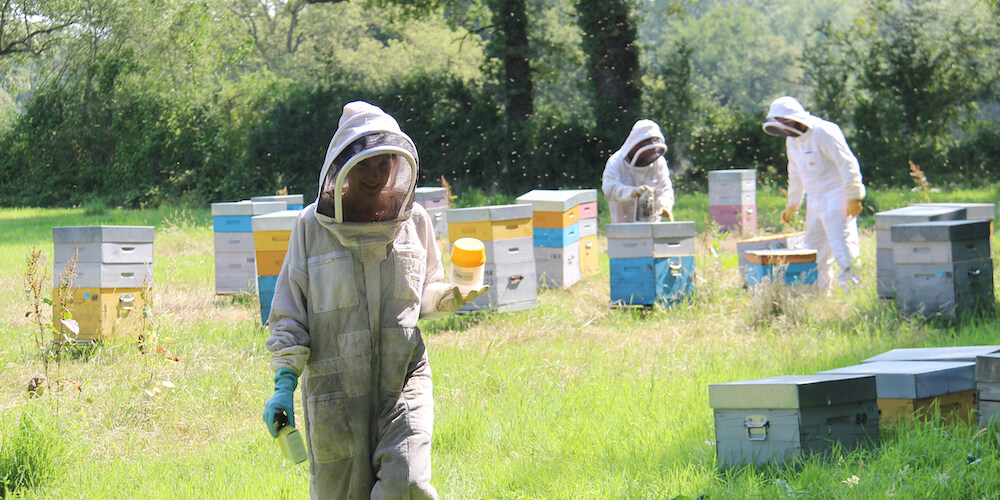
In August 2017, to intensify the search for new solutions against varroa and to develop a nutrition range, Véto-pharma recruited an agricultural engineer and former beekeeping technician of ADA Brittany, as the Responsible for Bee Innovations Projects. The VespaCatch hornet trap and attractant are also under development. An in-vivo study protocol was established to test the effectiveness of new molecules. The team applied its rigorous screening method to evaluate assets, identifying those effective against varroa and safe for bees.
In 2018, the apiary’s stock grew to 250 colonies, broadening the scope of varroa investigations and nutritional studies. Spanning various terrains within 20 km of Véto-pharma’s industrial site, the apiary aims to provide the best environment for colonies post-winter. The apiary team collaborates closely with the R&D and galenic teams to develop simple formulations for in vivo proof of concept following successful in vitro tests.
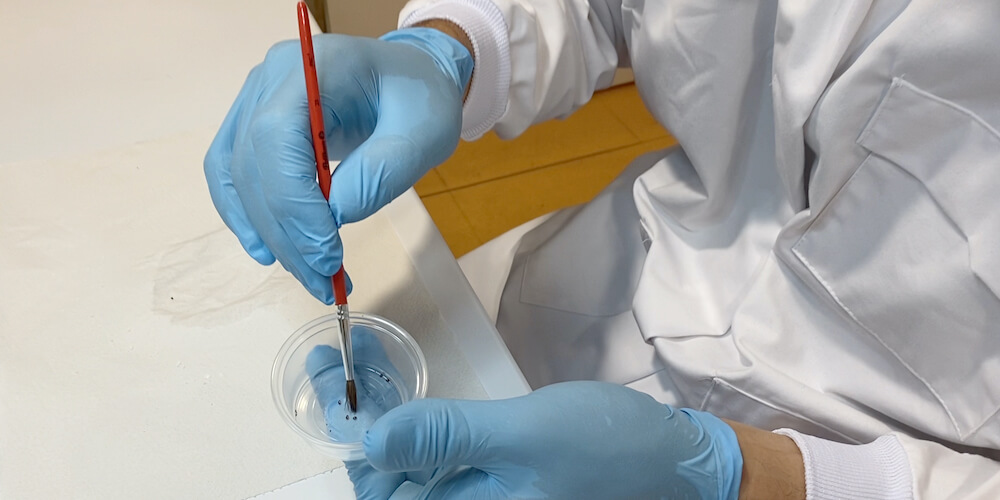
The team screened 38 new molecules, with only 7 showing promise. These will be re-evaluated in subsequent years alongside 20 other new compounds, totaling nearly 100 active ingredients evaluated to date.
In 2019, the introduction of the scanner for counting varroa mites demonstrated Véto-pharma’s commitment to leveraging advanced technologies to enhance research effectiveness.
Throughout 2020, new varroa infestation studies were conducted, paving the way for the development of Amiflex, a new product currently registered only in the United States.
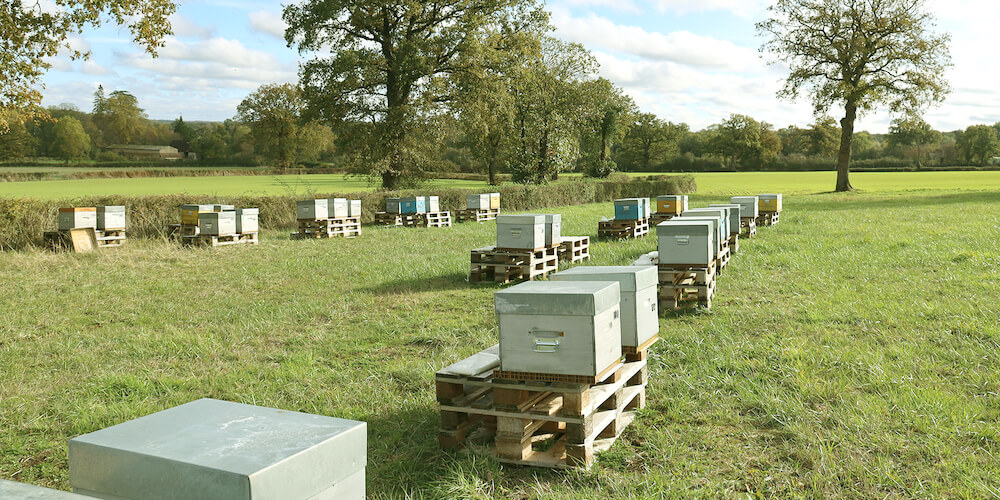
In September 2021, the R&D beekeeping team settled permanently at the Bee Valorization Space, which now houses nearly 300 hives. Adding about fifty Langstroth hives will enable tests on a model different from the standard Dadant hive, facilitating studies on product effectiveness in the most commonly used hive formats in the US, Canada, and northern Spain.
In July 2022, the number of varroa tests intensified, and nutrition tests were set up on 60 colonies, all equipped with electronic scales for precise evaluation.
In 2023, a partnership between Véto-pharma and the Canadian Simon Fraser University (SFU) accelerated varroa research. Véto-pharma and SFU are developing a new acaricide against Varroa destructor, with a promising active ingredient discovered in the early 2000s. Field trials in Canada have shown encouraging results, and the apiary will provide regulatory support and expertise for a solution adaptable to beekeepers’ practices and industrial production.
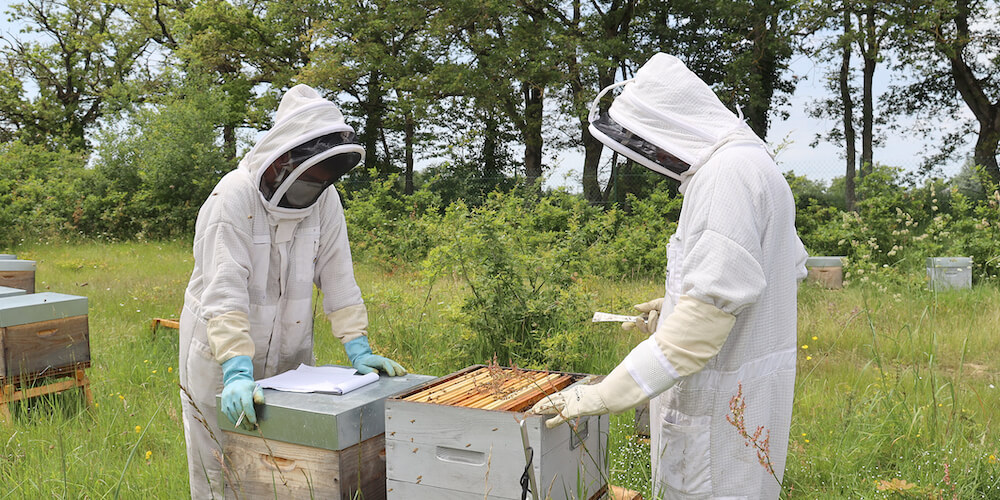
2024 marks a decade of significant innovations and a steadfast commitment to bee health. This year, the selective VespaCatch was launched, and the Research & Innovation department was also created, which will propel Véto-pharma’s pursuit of new solutions to meet beekeepers’ evolving needs.
“Over the past ten years, we have strengthened our position as leaders in the fight against varroa, innovating and collaborating closely with the beekeeping industry. With passion, innovation, and commitment, we have created a strong bond between humanity and science. As we face future challenges, we remain firmly dedicated to innovating and supporting beekeepers. This decade is just the beginning of an inspiring journey, highlighting the critical importance of protecting our precious allies: the bees.”
 by Véto-pharma
by Véto-pharma  by Véto-pharma
by Véto-pharma  by Véto-pharma
by Véto-pharma